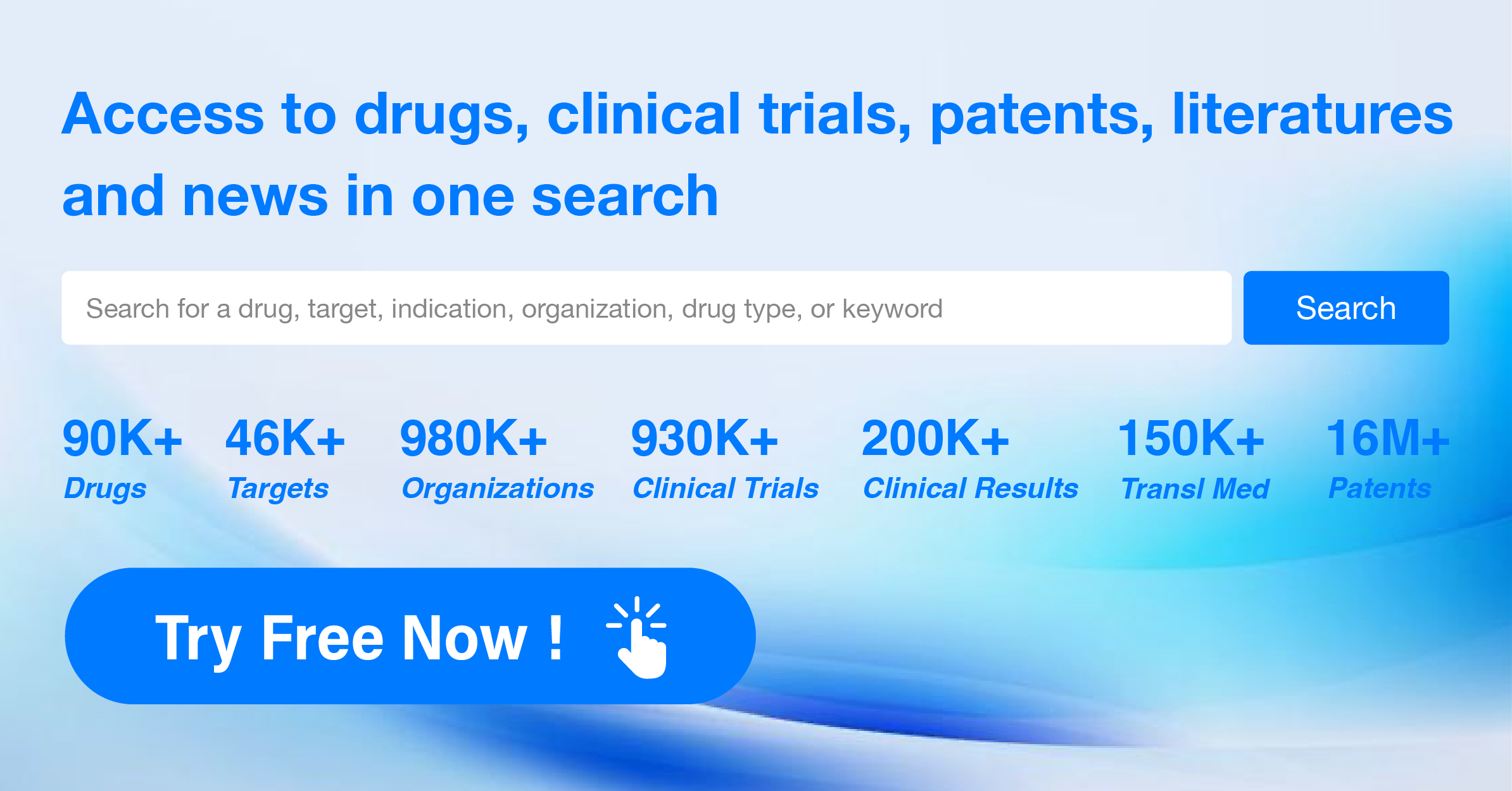Pharma Frontiers: Daily Digest of Global Pharmaceutical News – Jul 12
1.FDA Approves Arcutis' Innovative Eczema Therapy Zoryve (0.15%) Cream
Recently, Arcutis Biotherapeutics announced that the U.S. FDA has approved the supplemental New Drug Application (sNDA) for Zoryve (roflumilast, 0.15%) cream for the treatment of mild to moderate atopic dermatitis (AD) in adults and children aged 6 years and older. The approval of this sNDA was based on positive results from three Phase 3 studies, one Phase 2 dose-ranging study, and two Phase 1 pharmacokinetic studies. The studies INTEGUMENT-1 and INTEGUMENT-2 were identical, parallel-group, double-blind, placebo-controlled Phase 3 trials that evaluated the safety and efficacy of once-daily Zoryve (0.15%) cream or placebo over a period of four weeks, involving 1,337 participants aged 6 years and older with mild to moderate AD. Both INTEGUMENT-1 and INTEGUMENT-2 studies achieved their primary endpoint, the Investigator's Global Assessment (IGA) success rate, defined as a validated Investigator Global Assessment for Atopic Dermatitis (vIGA-AD) score of clear (0) or almost clear (1) with at least a 2-grade improvement from baseline at week 4 (INTEGUMENT-1: Zoryve, 32.0% vs placebo, 15.2%, P<0.0001; INTEGUMENT-2: Zoryve, 28.9% vs placebo, 12.0%, P<0.0001). In both studies, approximately 40% of children and adults achieved clear or almost clear vIGA-AD scores at week 4 after treatment with Zoryve cream (INTEGUMENT-1: 41.5% vs 25.2%, P<0.0001; INTEGUMENT-2: 39% vs 16.9%, P<0.0001), with significant improvements evident as early as week 1 (P<0.0001). Per the baseline change in Worst Itch Numeric Rating Scale (WI-NRS) scores, individuals treated with Zoryve cream experienced rapid improvement in itch symptoms within 24 hours after initial application, compared to placebo (P<0.05).
2.Amylyx to Acquire Breakthrough Therapy Avexitide and Commence Pivotal Phase 3 Clinical Trial
On July 11th, Amylyx Pharmaceuticals announced the acquisition of the investigational therapy avexitide from Eiger BioPharmaceuticals. To date, avexitide has been studied for the treatment of hyperinsulinemic hypoglycemia. Amylyx is planning to initiate a Phase 3 clinical trial in the first quarter of 2025 to assess the effectiveness of avexitide in treating post-bariatric hypoglycemia (PBH). Avexitide represents a potential "first-in-class" glucagon-like peptide-1 (GLP-1) receptor antagonist, previously evaluated in five clinical trials for the treatment of PBH and used in clinical investigations for treating congenital hyperinsulinism (HI). Both conditions are characterized by hyperinsulinemic hypoglycemia. The U.S. FDA has granted avexitide the Breakthrough Therapy designation for these two indications.
Avexitide functions by binding to the GLP-1 receptors on pancreatic β-cells, thereby blocking the action of GLP-1, reducing insulin secretion, and stabilizing blood glucose levels to alleviate hypoglycemia. In PBH, excessive GLP-1 can lead to overproduction of insulin, followed by severe hypoglycemic events. In previous Phase 2 and 2b studies targeting PBH, avexitide significantly reduced hypoglycemic events, including changes in mental and physical function, and the need for rescue from severe hypoglycemia. Based on FDA guidance and preliminary feedback from the pivotal Phase 3 clinical trial targeting PBH, the reduction of hypoglycemic events can serve as a clinical endpoint supporting approval.
3.Phase II/III Clinical Success for New Glioma Drug, Simcere Pharmaceutical Holds Rights in China
On July 10th, Kazia Therapeutics announced the successful results from the Phase II/III GBM-AGILE study of Paxalisib, compared to the Standard of Care (SOC), used in the treatment of glioblastoma multiforme. The study achieved the primary endpoint of Overall Survival (OS), showing clinically meaningful improvement in OS for patients with newly diagnosed unmethylated glioblastoma multiforme (NDU). Preliminary analysis revealed that median OS for NDU patients (n=54) treated with Paxalisib was 14.77 months, compared to 13.84 months for the standard treatment group. A pre-specified secondary analysis extended the median OS in the Paxalisib group (n=54) to 15.54 months, versus a decrease to 11.89 months in the control group (n=46); pre-specified sensitivity analysis showed similar median OS differences, at 15.54 and 11.70 months respectively. Paxalisib demonstrated good tolerability in the study and no new safety signals were discovered. Additionally, the study indicated that Paxalisib did not show superiority in recurrent patients, with a median OS of 8.05 months (n=100) compared to 9.69 months (n=113) in the control group. Based on these results, Kazia has indicated that it will discuss with the FDA the possibility of expediting the approval of Paxalisib for market release. Paxalisib is a potent inhibitor of the PI3K/mTOR pathway with effective penetration of the blood-brain barrier. In March 2021, Simcere Pharmaceutical signed an exclusive licensing agreement with Kazia Therapeutics to develop and commercialize Paxalisib for all indications in Greater China (Mainland China, Hong Kong, Macau, and Taiwan). According to the agreement, Simcere will be responsible for the development, registration, and commercialization of Paxalisien in Greater China, while Kazia Therapeutics will receive upfront payments, milestone payments, and a share of sales in China.
4.Alzheimer's Cell Therapy Granted FDA Regenerative Medicine Advanced Therapy Designation
On July 11th, Longeveron announced that its investigational therapy Lomecel-B has been granted Regenerative Medicine Advanced Therapy (RMAT) designation by the U.S. FDA for the treatment of mild Alzheimer's disease. According to the press release, Lomecel-B is the first cell therapy for Alzheimer's disease to receive this RMAT designation. Lomecel-B is an allogeneic cell therapy, derived from specialized cells isolated from the bone marrow of young, healthy adults. These specialized cells, known as Medicinal Signaling Cells (MSCs), play a crucial role in the body's inherent biological repair mechanisms. MSCs have been shown to perform numerous complex functions in the body, including participating in new tissue formation. They have also been proven to respond to sites of injury or disease and secrete bioactive factors with immunomodulatory and regenerative effects. Lomecel-B is being evaluated for multiple indications, including Alzheimer's disease (completed Phase 2a trial), age-related frailty (completed Phase 2b trial), and Hypoplastic Left Heart Syndrome (HLHS, ongoing Phase 2b trial). The CLEAR MIND trial, a randomized double-blind, placebo-controlled Phase 2 trial announced last October, aimed to explore the effects of Lomecel-B on mild Alzheimer's disease. This trial enrolled 50 patients with mild Alzheimer’s disease, aged between 60 and 85. The primary outcomes were as follows: Based on statistical and clinical assessment, the trial achieved its primary endpoint of safety. Patients treated with low and mixed dosages of Lomecel-B showed statistically significant improvements in the secondary endpoint, the Composite Alzheimer's Disease Score (CADS), compared to placebo. Additionally, patients using other dosages of Lome phone exhibited a reduction/prevention in the progression of the disease in metrics such as CADS, compared to placebo.
5.CSPC Pharmaceutical's mRNA Vaccine Approved for Clinical Trials for Respiratory Syncytial Virus Infection
On July 10, the website of the Center for Drug Evaluation (CDE) of China's National Medical Products Administration announced that CSPC Megalith Biopharmaceutical's class 1.2 new drug, an mRNA vaccine for Respiratory Syncytial Virus (RSV), has been granted implied clinical approval. This vaccine is aimed at preventing lower respiratory tract diseases caused by RSV infection. According to publicly available information from CSPC Pharmaceutical's official website, this product is another flagship addition to the company's mRNA portfolio. RSV is a common respiratory virus that can infect the lungs and airways. It is very prevalent, with most children being infected by the virus before the age of two. In adults, the elderly, and healthy children, the symptoms of RSV are generally mild. However, RSV can lead to severe infections in certain populations, including infants under one year of age, the elderly, individuals with cardiopulmonary diseases, or those with compromised immune systems, often requiring hospitalization. mRNA vaccines are one of the outcomes of decades of scientific research in the field of RNA therapies. In 2023, scientific breakthroughs in mRNA vaccines were recognized with the Nobel Prize. Currently, mRNA therapies are not only being developed for personalized cancer treatment but are also being extensively applied in the development of vaccines for infectious diseases and therapies for rare diseases. Currently, there are two RSV recombinant protein vaccines approved for marketing globally, but no RSV mRNA vaccines have been approved for market yet.
6.Minghui Gene Biotechnology’s CD30-targeted CAR-T cell therapy approved for clinical trials
On July 10, the official website of the Center for Drug Evaluation (CDE) of China’s National Medical Products Administration publicized that Minghui Gene Biotechnology’s application for a Class 1 innovative drug, an anti-CD30 chimeric antigen receptor autologous T-cell injection, had been approved for clinical trials. The product is being developed for the treatment of CD30-positive tumors such as Hodgkin’s lymphoma and anaplastic large cell lymphoma. CD30 is present in various hematological malignancies, with high expression levels observed in Hodgkin’s lymphoma and anaplastic large cell lymphoma; it is also found in other malignancies such as T-cell lymphoma and certain B-cell non-Hodgkin lymphomas. Previously, some antibody-drug conjugates (ADCs) and bispecific antibodies targeting CD30 have shown promising therapeutic effects in clinical trials. Public sources indicate that CD30 is a popular research target for CAR-T cell therapy. Besides this newly approved product, other autologous CAR-T therapies targeting CD30 are also in clinical research stages, such as TT11 by Tessa Therapeutics and BRD-01 by Bio-Raid Biotechnology among others. In April this year, The Lancet Hematology published results from a Phase 1 clinical study, suggesting that a CD30-targeted CAR-T cell therapy (ATLCAR.CD30) holds potential as a consolidation treatment for high-risk Hodgkin’s lymphoma patients following autologous HSCT.
7.Ipsen has introduced Foreseen Biotech's ADC, valued at up to $1.03 billion!
On July 11, Ipsen and Foreseen Biotech jointly announced that the parties have reached an exclusive global licensing agreement for the ADC product FS001. According to the terms of the agreement, Foreseen Biotech will receive up to $1.03 billion in funding, including upfront payments, payments at significant milestones in development, regulation, and commercialization, as well as tiered royalties on global sales following successful development and regulatory approvals. Ipsen has obtained exclusive rights to develop, manufacture, and commercialize FS001 worldwide. Ipsen will be responsible for Phase I preparation of FS001, including the submission of Investigational New Drug (IND) applications, as well as all subsequent clinical development, production, and global commercialization activities. FS001 is a potential first-in-class ADC targeting a novel tumor-associated antigen developed by Foreseen Biotech through its proprietary high-throughput integrative translational proteomics and AI-driven screening platform. This antigen is overexpressed in many solid tumors and plays a crucial role in tumor proliferation and metastasis. Additionally, FS2021 utilizes an innovative, stable, cleavable linker and a highly potent topoisomerase I inhibitor developed by Shi Jian Biotech. FS001 has demonstrated good preclinical efficacy in various drug-resistant cancer models. Currently, FS001 is in the final stages of preclinical development.
8.Amylyx Acquires GLP-1R Antagonist
On July 10th, Amylyx announced the acquisition of Avexitide from Eiger BioPharmaceuticals for $35.10 million. Should Avexitide be approved and brought to market in the future, Amylyx will also have to pay a 3% sales royalty fee on Avexitide’s earnings for its indication in post-bariatric hypoglycemia (PBH) to certain academic institutions. Avexitide is a first-in-class glucagon-like peptide-1 receptor (GLP-1R) antagonist developed by Eiger, designed to block the action of GLP-1 by binding with the GLP-1R on pancreatic beta cells, thereby reducing symptoms of hypoglycemia caused by excessive insulin secretion. Currently, Avexitide is under development for indications in PBH and hyperinsulinism (HI).
For PBH, Avexitide has completed two Phase II studies. The results of the PREVENT study demonstrated that Avexitide (30mg twice daily/60mg once daily) could significantly reduce the incidence of level 1 (glucose level <70mg/dL), level 2 (glucose level <54mg/dL), and level 3 (severe events requiring assistance due to changes in mental status or physical function) hypoglycemic events. Additionally, continuous glucose monitoring (CGM) revealed reductions in the duration of hypoglycemia episodes in patients, without inducing clinically relevant hyperglycemia. Another Phase II study indicated that treatment with Avexitide (45mg twice daily /90mg once daily) also significantly decreased the incidence of daytime and nocturnal level 2 and level 3 hypoglycemic events.Amylyx plans to initiate a Phase III study of Avexitide for PBH treatment by the first quarter of 2025. Furthermore, Amylyx aims to advance its development for the HI indication.
How to obtain the latest research advancements in the field of biopharmaceuticals?
In the Synapse database, you can keep abreast of the latest research and development advances in drugs, targets, indications, organizations, etc., anywhere and anytime, on a daily or weekly basis. Click on the image below to embark on a brand new journey of drug discovery!




